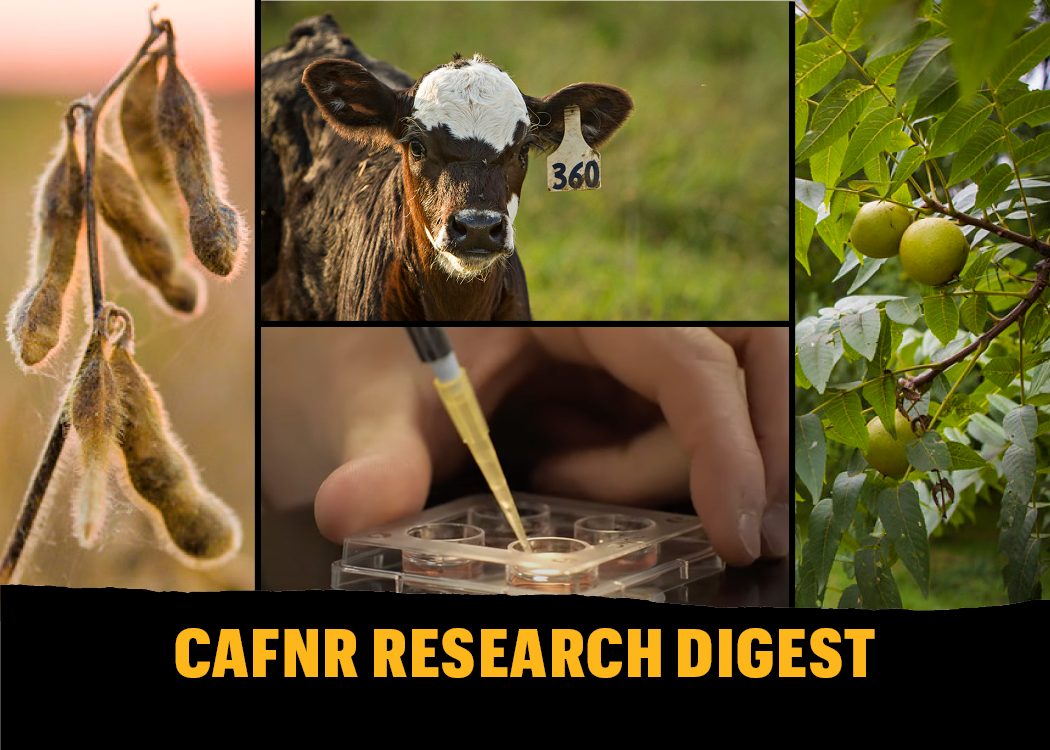|
Kristen Veum & Tim Reinbott Elected Officers in American Society of Agronomy
Kristen Veum, assistant adjunct professor in the School of Natural Resources and research soil scientist with the U.S. Department of Agriculture – Agricultural Research Service, has been elected to serve as president of the American Society of Agronomy (ASA). She will begin in this position as president-elect in January 2023.
Tim Reinbott, director of field operations for Missouri Agricultural Experiment Station, was elected as land management section vice chair for calendar year 2023. During this term, he will also serve as a section officer on the ASA election committee.
Rishabh Mahendra Receives the International Student Award
Rishabh Mahendra, graduate student in agricultural and applied economics, received the International Student Award through the University of Missouri Graduate Professional Council. This award honors an international graduate or professional student who shows exemplary leadership and service to the university and to the international student community.
Kerry Clark Receives International Recognition Award
Kerry Clark, director of CAFNR International Programs, was selected as the recipient of the Missouri International Student Council (MISC) International Recognition Award. This award recognizes contributions to an international and culturally-diverse community at Mizzou.
In her nomination letter, it was stated, “Since last year, Dr. Clark has been giving international students free driving classes. More than 10 students took a driving course from her free of charge and already got their driving license. She also hosts CAFNR MU Engage meetings for students and helps to bring the international student community together.”
Clark was presented with the award at the International Banquet on April 20.
CAFNR faculty members have received the following recent grants (listed by Principal Investigator):
Heike Buecking, Acquisition of Goods and Services, Agricultural Research Svc, 4/14/2022- 3/31/2023, $111,832
Michael Byrne, Alejandro Chavez Trevino: Breeding success of Eastern Meadowlark (Sturnella magn) and interactions with bison grazing in restored prairies of the Midewin National Tallgrass Prairie, Missouri Birding Association, 4/1/2022-3/31/2023, $3,300
Michael Sunde, Mapping Ecological Systems in Arkansas to Enhance the Wildlife Action Plan and Inform Conservation of Species of Greatest Conservation Need, AR Fish and Game, 4/12/2022- 3/31/2024, $132,000
|
